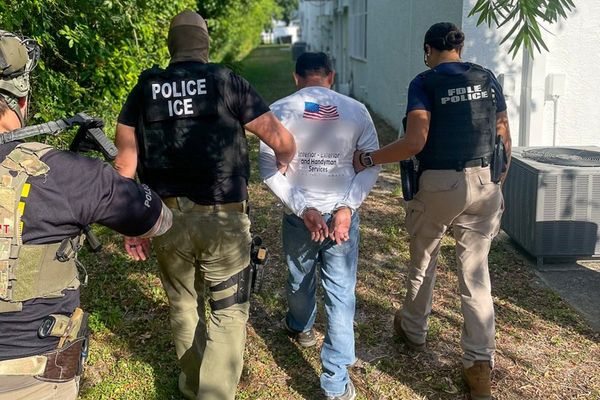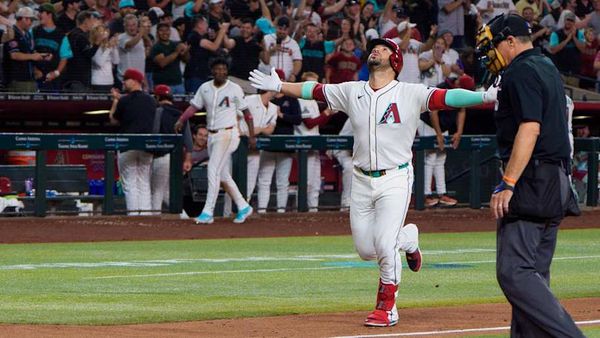
Handing down his eighth Victorian budget on Tuesday, the treasurer, Tim Pallas, pitched it at not one but two elections.
The most timely is the federal election. Through the budget, Pallas makes it clear that, whoever wins in May, he expects a greater share of funding for Victoria and is happy to criticise the Morrison government until then.
But the most important election for the treasurer is, of course, the state election, set for 26 November.
While there is the typical pre-state election sweetener – in the form of a $250 payment for every household that seeks out a better power deal – Pallas’s budget largely focuses on repair and recovery for the health system after two bruising years of the Covid-19 pandemic.
Entitled Putting Patients First, the budget allocates $12bn to upgrading and building new hospitals, hiring and training thousands of new nurses and hundreds of triple-zero call takers and driving down the state’s growing elective surgery waiting list.
In doing so, the government is clearly attempting to neutralise what has become a headline-grabbing problem.
Since October last year, up to 12 Victorians have died while waiting for an ambulance – their loved ones’ calls to triple-zero either went unanswered or were picked up well outside the service’s target times.
There have also been deaths in the state’s overcrowded emergency departments, including that of a 72-year-old man who waited three-and-a-half hours for a bed in regional Victoria, and harrowing stories of people spending weeks and even months in pain while on the elective surgery waitlist.
The opposition has relentlessly pursued the government over this and maintains the problems with the health system existed well before the pandemic. But it will now need to come up with its own, better plan if it wants to fight an election on the issue.
The government is also attempting to neutralise another favourite attack line from the opposition – that it can’t manage its finances, with a modest $650m surplus forecast for the 2025-26 financial year.
But by then, Victoria will reach a record net debt level of $167.5bn, or 26% of gross state product.
The treasurer is confident the government will be able to drive that down, using the newly created Victorian Future Fund, made up of proceeds from the privatisation of VicRoads number plate and registration services and yet-to-be-announced land sales to repay Covid borrowings.
The fund is projected to have a balance of about $10bn in the medium term, with more details expected to be announced in July.
The opposition says it will soon unveil its own plans to drive debt down more quickly.
It’s looking increasingly likely that the state election will be played out on traditional turf. Labor will spruik its investments in health, education and infrastructure, while the Coalition will say it can efficiently manage the economy.
In the meantime, $2.3bn is allocated for “funding not allocated to specific purposes” over the next four years – so Victorians can expect more announcements before the poll.
But there is one important event before then.
Released during the federal election campaign, a whole chapter of Budget Paper 2 is dedicated to “Victoria’s economic recovery despite insufficient Commonwealth support”.
It outlines how Canberra has consistently given Victoria less than its “fair share” of infrastructure funding, and how the GST carve-up will leave the state worse off come 2026-27.
Pallas told reporters the GST deal is “the worst public policy disaster this nation’s had since we decided to build Canberra”. This was a clear riff on his federal counterpart Josh Frydenberg’s statement during the Melbourne lockdowns that they were the worst public policy disaster in Australian history.
Pallas didn’t hold back in his speech to parliament either.
“We’ve had to do more to vaccinate Victorians, help business and support workers – because the commonwealth simply didn’t do its job. This all means less for our hospitals and schools, for roads and rail,” he said.
“The commonwealth government, whoever they are, must stop short-changing hard-working Victorians and give us our fair share … funding Victoria fairly is not foreign aid – this is simply what Victorians are entitled to, as Australians.
“Our federation won’t function effectively if the commonwealth disappears in our hour of need and treats Victorians as second-class citizens.”
Pallas is clearly seeking to remind Victorians of the failures of the prime minister, Scott Morrison, during the pandemic, and of Frydenberg kicking the state while it was down.
While the budget seeks to repair the damage of the past two years, it’s clear some wounds are yet to heal. How deep they are will be revealed at both elections.







